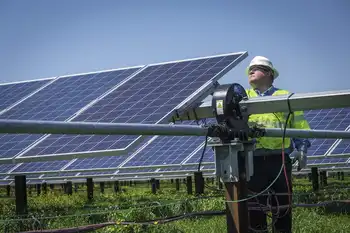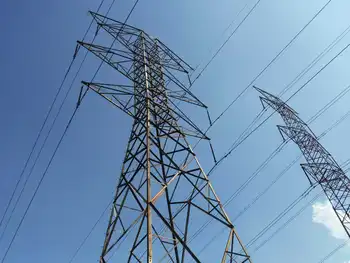Emergency system key to nuclear safety
BEIJING, CHINA - China has established an emergency response system to nuclear accidents to ensure that the country's nuclear power production programme grows safely, the National Atomic Energy Authority said.
Such a system at the national, provincial/municipal, and power plant levels has operated well for the past 20 years, the Xinhua News Agency reported recently.
The system is a result of continuing efforts to improve regulations as well as infrastructure related to nuclear power generation, the agency said.
The State Council approved a medium- and long-term nuclear power development plan (2006-20) in March, which said nuclear power is a strategic energy source and should be developed to meet the country's growing energy demand.
Plans have also been formulated to help prevent nuclear accidents, Xinhua said.
Rules on the management of nuclear power plants were unveiled starting from 1986. To strengthen management in the sector, the State Council has decided to establish a special commission on nuclear accidents, which is responsible for relief and rescue efforts.
"Nuclear safety is the lifeline of the nuclear industry," Sun Qin, director of the National Atomic Energy Authority, said in a recent article published in People's Daily to commemorate the 20th anniversary of the Chernobyl disaster, the world's worst nuclear power accident.
The tragedy occurred at Chernobyl in the former Soviet Union (now Ukraine) on April 25-26, 1986, killing more than 30 people immediately. As a result of the high radiation in the surrounding 32- kilometre radius, 135,000 people had to be evacuated.
The Chernobyl accident made many countries realize the necessity to prepare for nuclear emergencies, Sun said.
In contrast to the Chernobyl nuclear reactor, which was a graphite-moderated reactor or boiling water reactor, the ones used in China are heavy water reactors, which are safer in design, structure and operation, Sun said.
China has kept good safety records in the nuclear sector, with no operational accidents having taken place, and the radiation that workers receive is within the national safety standards, Sun said in the article.
Highlighting the importance of safety, Sun said greater attention must be paid to the design, building, operation and management of nuclear power plants.
Since China built its first nuclear power plant in 1991, nine nuclear power generation units are now in operation, with a combined capacity of 7 million kilowatts.
Another nuclear power plant in Tianwan of Jiangsu Province will start operation soon, which will increase the total capacity to 9 million kilowatts, Sun said.
The nation plans to increase the total capacity of its nuclear power plants to 40 million kilowatts by 2020, Xinhua said.
Related News

New Hampshire rejects Quebec-Massachusetts transmission proposal
MONTREAL - Regulators in the state of New Hampshire on Thursday rejected a major electricity project being piloted by Quebec’s hydro utility and its American partner, Eversource.
Members of New Hampshire’s Site Evaluation Committee unanimously denied an application for the Northern Pass project, a week after the state of Massachusetts green-lit the proposal.
Both states had to accept the project, as the transmission lines were to bring up to 9.45 terawatt hours of electricity per year from Quebec’s hydroelectric plants to Massachusetts, through New Hampshire.
The 20-year proposal was to be the biggest export contract in Hydro-Quebec’s history, and would generate up to…




